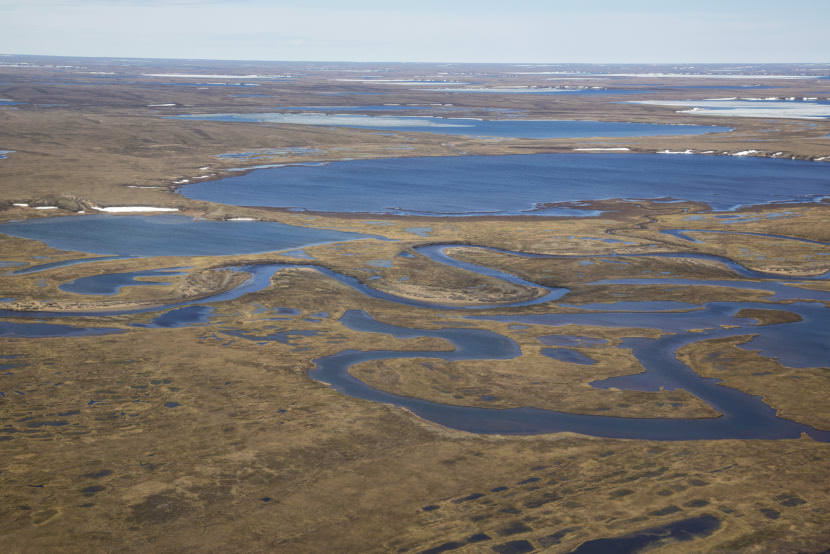
The Department of Interior is formally kicking off the process for this year’s oil and gas lease sale in the National Petroleum Reserve-Alaska (NPR-A), an Indiana-sized area of land on the North Slope.
Today, the Bureau of Land Management asked for public comment on what land should or shouldn’t be available for drilling.
Last year, the Trump administration put all 900 available tracts up for bid. That added up to over 10 million acres, the most ever offered in a single lease sale in NPR-A according to the federal government — a move that drew criticism from environmental groups.
But in the end, oil companies only bid on seven tracts.
Earlier lease sales were more successful. Oil company ConocoPhillips is currently pursuing several significant developments in NPR-A. According to the Bureau of Land Management, about 1.4 million of the Reserve’s 22.8 million acres are currently leased; the majority of that is held by Conoco.
Environmental groups are legally challenging both last year’s sale and the 2016 sale, held under the Obama administration. One of the groups’ arguments is that federal government did not sufficiently consider the potential climate impacts of oil development when planning for the sales. Those lawsuits are still pending.
Roughly half of NPR-A was put off limits to oil development by the Obama administration, which cited the need to protect habitat for caribou and migratory birds. However, much of the currently off-limits land is considered to have high potential for oil development. The Trump administration is currently considering opening up more land in NPR-A to oil leasing.
For this year’s lease sale, BLM is only taking nominations on tracts offered under the current plan. The agency is accepting comments on the 2018 lease sale until August 20.
Elizabeth Harball is a reporter with Alaska's Energy Desk, covering Alaska’s oil and gas industry and environmental policy. She is a contributor to the Energy Desk’s Midnight Oil podcast series. Before moving to Alaska in 2016, Harball worked at E&E News in Washington, D.C., where she covered federal and state climate change policy. Originally from Kalispell, Montana, Harball is a graduate of Columbia University Graduate School of Journalism.




